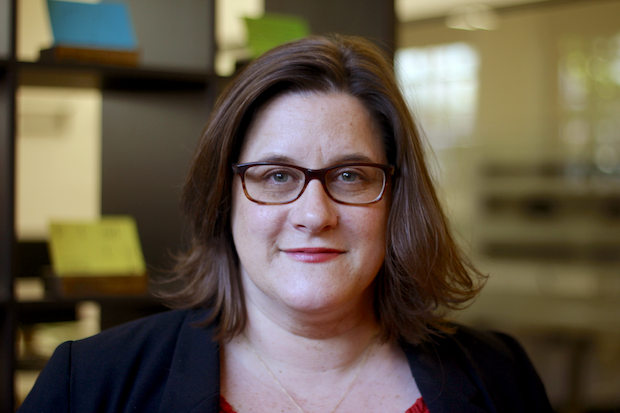
On International Fact-Checking Day, Google is giving $6.5 million (£5.3 million) in grants to organisations around the world that tackle misinformation, with an immediate focus on the covid-19 pandemic.
Those benefiting from the funding include UK independent fact-checker Full Fact and Spanish Malta.es who will coordinate international efforts to amplify experts and reduce the spread of harmful content, the press release stated.
In the UK, the Google News Initiative is intensifying its support for First Draft, a nonprofit organisation that provides verification tools and training, as well as coordinating the CrossCheck network.
To understand what this means to the journalists and fact-checkers up and down the country, we caught up with Jenni Sargent, managing director at First Draft.

Q Are you seeing any new trends in misinformation relating to the coronavirus?
While there are similarities, for example, scammers trying to make money from health supplements that supposedly prevent or cure covid-19, others are trying to sit on coronavirus domain names to sell masks, old images resurfacing out of context, etc, it does feel quite different.
This time we are seeing a lot of misinformation circulating in closed messaging apps, like WhatsApp and SMS. While we' have seen this in countries like India and Brazil before, the quantity of false and misleading information in these spaces in countries in western Europe and the US is a new trend.
Also, a lot of the content does not appear to readers as utterly fabricated. It is people sharing rumours about immediate shutdowns or the army getting involved with policing. Unfortunately, these are travelling widely as there is more than a kernel of truth to many of these. These rumours are jumping across borders where in some places, some of the information is closer to the truth. As a result, they are spreading quickly because people think - ‘well, it might not be true, but if it is, I want to share with my friends and family’.
Q What new work will part of this funding allow you to launch?
As a founding partner of First Draft, Google provides core support for our work each year. This allows us to maintain teams in London, New York and Sydney, and develop ongoing partnerships and projects around the world that do not depend on direct project funding. This level of support is critical to our work because misinformation does not start and stop around elections, and trends and themes move across borders.
As we have seen with the impact of coronavirus, our response needed to be quick and to reflect the needs of many different information providers in different regions and contexts. We have just launched a dedicated online course to help journalists covering coronavirus, and we will be translating that into 12 languages in the next six weeks. We will also be adapting the course for a public audience and translating that too. Finally, our team have started to run webinars each week in different languages.
Q Are you planning to step up collaboration around fact-checking between the various recipients?
Yes, we are hosting a collaborative community of journalists and researchers right now, starting with the US, UK, France and Australia, and adding in new countries each day. First Draft is sharing topic briefings and updates around the trends and themes we are seeing, to help inform and shape the coverage of our partners. The next phase is to coordinate published output to ensure that the most urgent, accurate information is consistent across all trusted organisations.
Q How are you going to tackle covid-19-related misinformation on private messaging apps?
We are launching a global tipline that will integrate with our internal monitoring systems, to help steer and prioritise our collective coverage each day. The public play a crucial role in how we understand the direct impact and challenges faced by different communities.
We need to better understand what information they are seeking, what they doubt, what they find confusing and what they have direct experience and specialism in that they wish could reach a wider audience. Whenever we run these projects that bring in information from the public and social media, verification is essential, so enhancing the skills of reporters and researchers right now is a big part of what we are working on.
Q What steps can journalists take to help your efforts to verify content and fight the spread of harmful false information?
We hope journalists will use our new 'covering coronavirus online course'. It has got two hours of brand new videos, case studies and explainers, designed around the challenges journalists are currently facing.
Journalists can also tune into our webinar series where we are sharing lots of our learnings, and subscribe to our daily briefings where we summarise the major online trends we are seeing from the previous 24 hours.
This conversation was conducted via email and published with minor edits for clarity purposes.
Free daily newsletter
If you like our news and feature articles, you can sign up to receive our free daily (Mon-Fri) email newsletter (mobile friendly).
Related articles
- Six self-care tips for journalists to stay sane during the general election
- Post-Perugia thoughts: what went wrong between big tech and the news?
- Audiences, AI and audio apps: five talking points from Perugia
- Protecting independent journalism, with Lexie Kirkconnell-Kawana of IMPRESS
- Why Australia's bid to make big tech pay for news failed: views from an indie publisher









